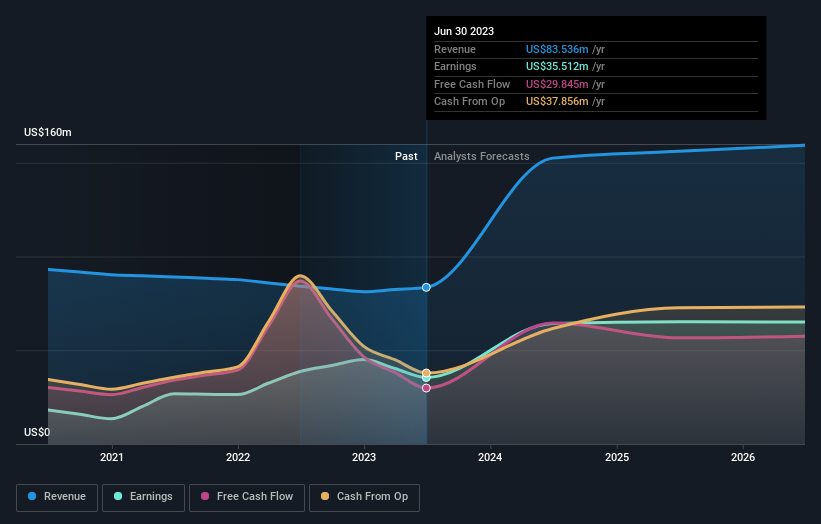Navigator Global Investments (ASX:NGI) shareholders have endured a 31% loss from investing in the stock five years ago
Navigator Global Investments Limited (ASX:NGI) shareholders should be happy to see the share price up 22% in the last month. But over the last half decade, the stock has not performed well. In fact, the share price is down 54%, which falls well short of the return you could get by buying an index fund.
It's worthwhile assessing if the company's economics have been moving in lockstep with these underwhelming shareholder returns, or if there is some disparity between the two. So let's do just that.
See our latest analysis for Navigator Global Investments
While markets are a powerful pricing mechanism, share prices reflect investor sentiment, not just underlying business performance. By comparing earnings per share (EPS) and share price changes over time, we can get a feel for how investor attitudes to a company have morphed over time.
Navigator Global Investments became profitable within the last five years. That would generally be considered a positive, so we are surprised to see the share price is down. Other metrics may better explain the share price move.
It could be that the revenue decline of 3.8% per year is viewed as evidence that Navigator Global Investments is shrinking. This has probably encouraged some shareholders to sell down the stock.
The image below shows how earnings and revenue have tracked over time (if you click on the image you can see greater detail).

This free interactive report on Navigator Global Investments' balance sheet strength is a great place to start, if you want to investigate the stock further.
What About Dividends?
As well as measuring the share price return, investors should also consider the total shareholder return (TSR). Whereas the share price return only reflects the change in the share price, the TSR includes the value of dividends (assuming they were reinvested) and the benefit of any discounted capital raising or spin-off. It's fair to say that the TSR gives a more complete picture for stocks that pay a dividend. As it happens, Navigator Global Investments' TSR for the last 5 years was -31%, which exceeds the share price return mentioned earlier. The dividends paid by the company have thusly boosted the total shareholder return.
A Different Perspective
It's good to see that Navigator Global Investments has rewarded shareholders with a total shareholder return of 25% in the last twelve months. And that does include the dividend. There's no doubt those recent returns are much better than the TSR loss of 5% per year over five years. This makes us a little wary, but the business might have turned around its fortunes. I find it very interesting to look at share price over the long term as a proxy for business performance. But to truly gain insight, we need to consider other information, too. Case in point: We've spotted 3 warning signs for Navigator Global Investments you should be aware of, and 1 of them is a bit concerning.
We will like Navigator Global Investments better if we see some big insider buys. While we wait, check out this free list of growing companies with considerable, recent, insider buying.
Please note, the market returns quoted in this article reflect the market weighted average returns of stocks that currently trade on Australian exchanges.
Have feedback on this article? Concerned about the content? Get in touch with us directly. Alternatively, email editorial-team (at) simplywallst.com.
This article by Simply Wall St is general in nature. We provide commentary based on historical data and analyst forecasts only using an unbiased methodology and our articles are not intended to be financial advice. It does not constitute a recommendation to buy or sell any stock, and does not take account of your objectives, or your financial situation. We aim to bring you long-term focused analysis driven by fundamental data. Note that our analysis may not factor in the latest price-sensitive company announcements or qualitative material. Simply Wall St has no position in any stocks mentioned.
